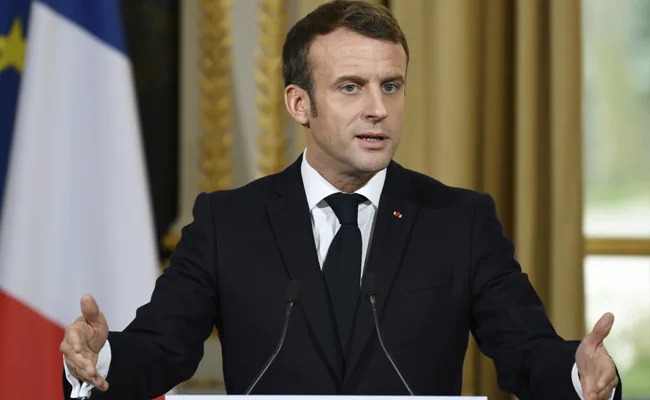
Paris, France: In a bid to prevent further escalation in the volatile Middle East, French President Emmanuel Macron has called on Israel to exercise restraint, particularly in Lebanon.
The appeal comes in the aftermath of a strike attributed to Israel that resulted in the death of Hamas’s deputy leader in Beirut, as confirmed by the Elysee Palace on Tuesday.
President Macron engaged in a telephone conversation with Israeli Minister and war cabinet member Benny Gantz, during which he emphasized the importance of avoiding escalatory actions, particularly in Lebanon.
The Elysee Palace reported that Macron conveyed a strong message, asserting that it is essential to steer clear of any actions that could heighten tensions in the already complex and sensitive region.
France, a key player in diplomatic efforts, has pledged to continue relaying these messages to all parties directly or indirectly involved in the area, underscoring its commitment to de-escalation and regional stability.
The French presidency highlighted Macron’s diplomatic initiative as a proactive step aimed at curbing potential further hostilities and fostering a climate conducive to dialogue.
The strike in Beirut that claimed the life of Hamas’s deputy leader has raised concerns about a potential escalation of tensions in an area already grappling with geopolitical complexities.
Macron’s intervention reflects a broader international concern for the stability of the region and the potential ripple effects that heightened tensions could have on neighbouring nations.
The incident underscores the delicate balance that regional and global powers must navigate when addressing conflicts in the Middle East.
Macron’s call for restraint aligns with the broader international community’s interest in preventing an escalation that could further destabilize an already volatile situation.
The dynamics between Israel and Lebanon have long been marked by tension, and any escalation has the potential to draw in various stakeholders, further complicating an already intricate geopolitical landscape.
The strike in Beirut adds another layer to the complex web of regional relationships and conflicts, necessitating careful diplomacy to prevent a broader crisis.
As the situation unfolds, the world watches closely to see how diplomatic efforts, such as Macron’s plea for restraint, will impact the trajectory of events in the Middle East.
The challenge remains to find a balance between addressing legitimate security concerns and avoiding actions that could spark a larger conflagration with far-reaching consequences.
In conclusion, Macron’s call for restraint in the wake of the Beirut strike underscores the importance of diplomatic initiatives to prevent further escalation in the region.
As tensions persist, the international community faces the challenge of navigating a complex geopolitical landscape and fostering conditions conducive to dialogue and stability in the Middle East.
This article was created using automation technology and was thoroughly edited and fact-checked by one of our editorial staff members